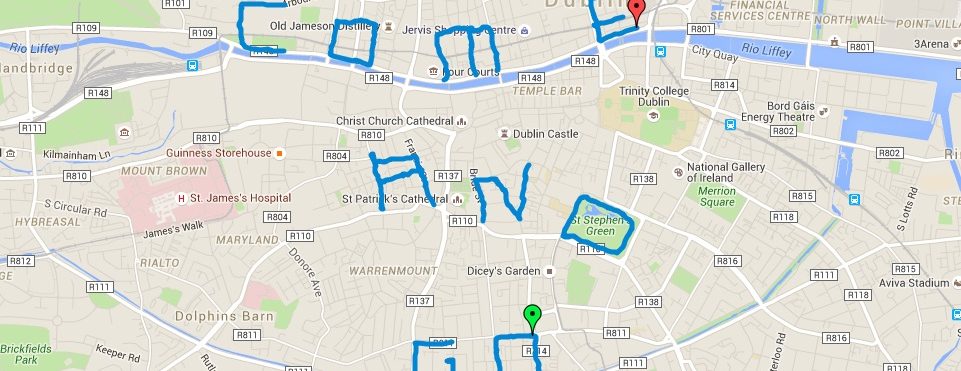14 theses and ghosts for locative and mobile media
Post do adventures in jutland indica 14 teses sobre locative mídia e a idéia de “Loco-motion”, de Andrew Murphie. Interessante como tema das “post-mass media functions”, “territorialization”, mobilidade e imobilidade, temporalidade, distribuição de conteúdo, entre outros que venho discutindo, aparecem aqui com variantes:
“Mobile and locative media are now at the core of things. This is an unstable core. It’s this instability I’m interested in today. I’m not trying to ‘pin down’ mobile and locative media. Rather I’m interesting in how what I’m calling ‘loco-motion’ propels an ongoing variation in living and technical systems. This has implications for thinking about media, but also for much else. I’m also interested in loco-mobile media as inter-temporal. By this I don’t mean that we have lots of modes of living available to us, that we can switch between. Rather I’m suggesting that the switching itself is becoming our prime mode of living, not only with mobile phones, or locative media, but all media events, for example VJing.
14 THESES ON MOBILE AND LOCATIVE MEDIA
1 – If a body coincides with its own variati0n’ (Massumi) then mobile media coincide with their own variation
2 – Location is Mobile
3 – The Locative Opens a Field of Variation
4 – Loco-motion remakes communication – but not as communication studies style communication. Here ‘Communication is a mutual adjustment of
bodies’ (Sean Watson)
5 – Loco-motive battles are not over content, or communications, or intellectual property, but over affective distribution.
6 – Work with loco-motion is transdisciplinary, beyond even this perhaps. There are no ‘stable’ media to pin down in a discipline. A self-satisfied Media Studies perishes.
7 – Mobility is often immobile, if immobile intensity. However, it’s also true that mobility creates mobility.
8 – It’s the phone that’s mobile, not you.
9 – Loco-motion resists ‘art’, but is good for chasings
10 – Loco-motion brings the ‘postcognitive’ into fuller operation (Mark Amerika)
11 – New inter-temporalities proliferate.
12 – So do new ‘pre-accelerations’ (Erin Manning). So do new preterritorialisations
13 – loco-motion is about targeting (servomechanisms rule the world in most spheres of life)
14 – loco-motion ‘fractalises’ (Guattari) ‘the screen’ and with it the society of spectacle (there is no attention, no ‘capture’, no time of the gaze, only inter-times) (…)”
